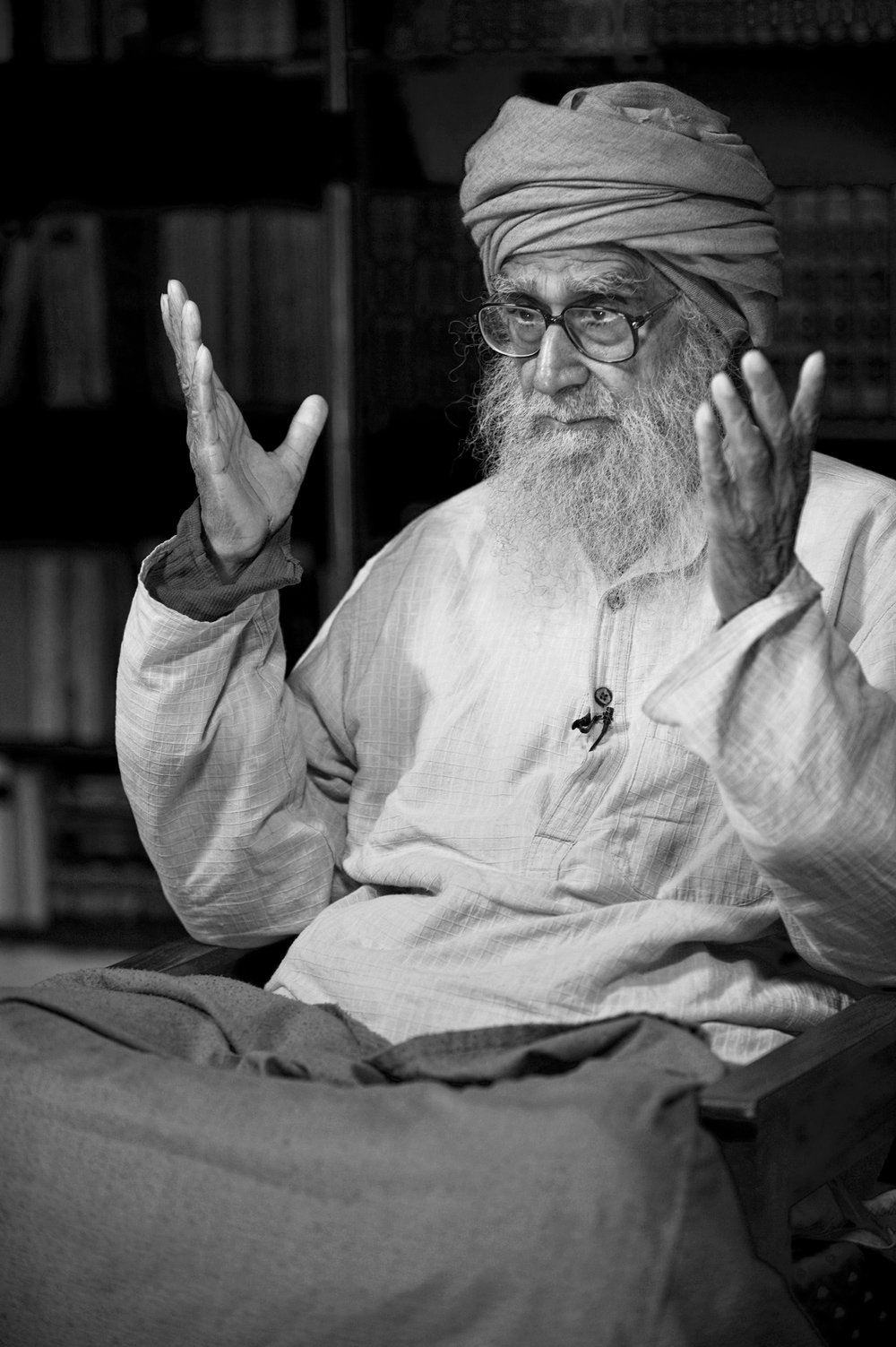ASK MAULANA
Your Questions Answered
 What are the differences between the major religions of the world?
What are the differences between the major religions of the world?
Religion means the ideology of truth. The major religions of the world can be divided into two broad categories—the Aryan and the Semitic, with Hinduism, Buddhism and Jainism falling in the former; and Judaism, Christianity and Islam in the latter.
As far as their theological aspects are concerned, there is a marked difference between these two kinds of religions. While the Aryan religions are basically philosophy-based, the Semitic religions are Revelation-based. The former represents the culmination of the philosophical pursuit of truth by the great minds of the world. In the quest for reality, meditation and contemplation brought these saintly souls to the conclusions that gave rise to the organized religions of the eastern hemisphere.
The creeds of the Semitic religions on the other hand, are based on divine revelation. That is, God chose a series of Semites to be His apostles and then imparted to them His commandments. These messengers were the bearers of divine scriptures and these divine scriptures provided the fundamentals of the Semitic religions, as they exist today.
The basic difference with respect to beliefs of the Aryan and Semitic religions can be briefly described in terms of monism and monotheism respectively.
Although both traditions—monism and monotheism—have the idea of God in common, there are fundamental differences in their conceptualization of God. In the Aryan tradition, God is an all-pervasive force rather than an independent reality. Monism posits the totality of a single reality, with all the diverse phenomena of the natural world seen as different manifestations of the same reality.
According to this concept, therefore, there is no real difference between the creator and the creature. Thus as per the monism concept of an individual, a personalized God does not exist.
Did God send guidance to all nations?
Along with creating man, God started a chain of prophethood for human guidance. In every age and in every nation prophets have come and conveyed the message of God to men. The Quran says:
Has he not heard of what is preached in the books of Moses and Abraham, who fulfilled his duty: that no soul shall bear another’s burden and that each man shall be judged by his own labours; that his labours shall be scrutinized and that he shall be justly requited for them; that all things shall in the end return to God? (THE QURAN 53: 36-41)
While provision for the sustenance of life remained constantly available in this world, the principles of how to lead this life were sent to man by God again and again as the occasion demanded. Each prophet was truly a representative of God. But, with the passage of time, the books brought by the messengers were altered and marred by the interpolations of their followers. Thus the original divine guidance became veiled by these human additions. Ultimately God sent the Arab Prophet with the Quran. And God Himself undertook the responsibility of preserving the Quran in totality so that it might remain a source of authentic guidance for mankind for all time to come.
The essence of the reality revealed by God through the Prophet is that everyone will necessarily be rewarded for his actions in this world. None can escape the consequences of his actions, nor can anyone save another. Those who fail to take heed of the warnings by the Prophet are the most foolish in this world.
So far as man’s relation to God is concerned, everyone is responsible for his own actions. None can share in the consequences of another’s deeds. Nor will anyone reap a harvest in the next world other than what he has sown here in this world.





